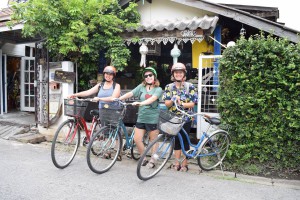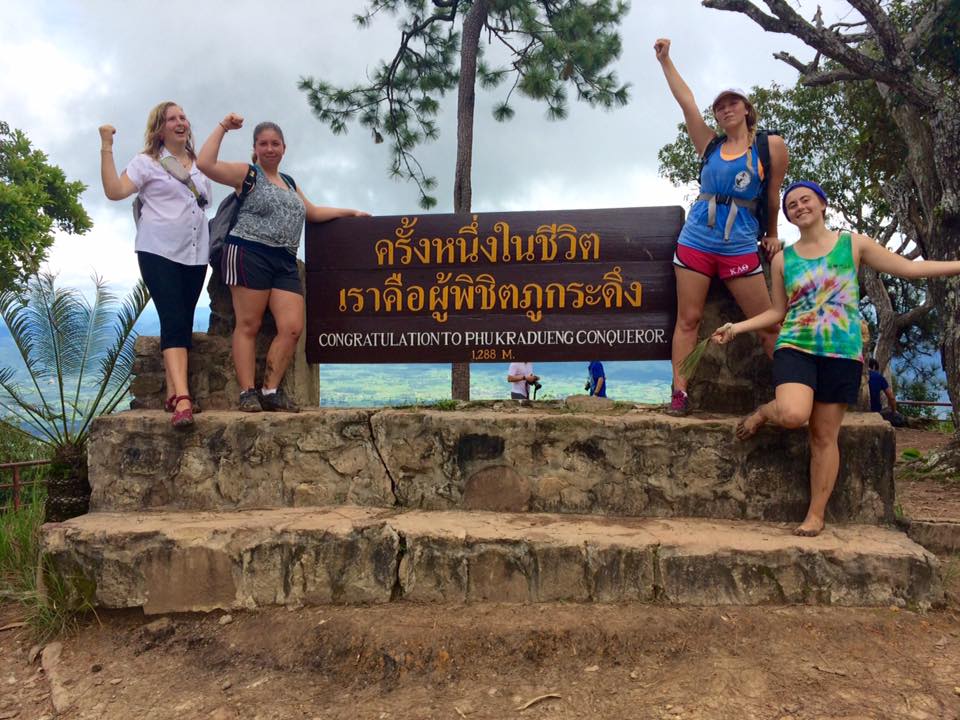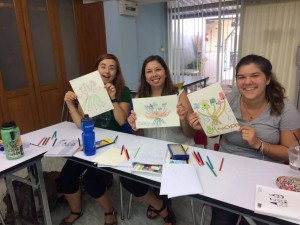Over the past two and a half months, I have come to deeply appreciate many aspects of my study abroad program. As a participant in the Thailand-based CIEE Khon Kaen Development & Globalization program, I have loved everything from my bi-monthly homestays and group research projects to my journalism assignments and adventurous weekend excursions.
But one of the aspects of my program that I am most thankful for is the language component. Like many abroad programs, mine includes a required local language course to help students communicate and connect with their new community. While language learning is not the ultimate goal of the program, it really enhances everything we do here and I can’t imagine what my experience would be like without it.
Here are a few reasons why I’ve love learning Thai:
The teaching methods stick.
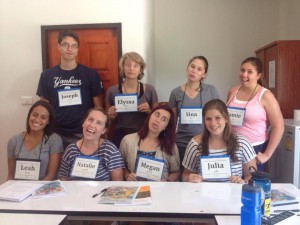
Our Thai professors use nonconventional teaching methods that are both tons of fun and very effective. Our course is focused purely on conversational speaking and giving us the tools we need to be successful Thailand residents for four months. Since August, we have learned a substantial amount of vocabulary and can now talk fairly comfortably about things like food, family, locations, appearance and personality, activities, and feelings.
Plus, before each of our development and globalization units (organic agriculture, water management, land rights…) we learn unit-specific vocabulary. Therefore, in addition to knowing how to say spicy, bookstore, and hiking, I can also say mono cropping, wetland, and land title, which comes in very handy during out community stays.
Our classes are very interactive and engaging, focused mainly on listening and speaking while still allowing all kinds of learners to be successful. We play games, make up stories, have conversations, and take frequent breaks for note-taking and snack-eating. Our assignments have included making group videos, performing skits, interviewing our homestay families, and recording pair discussions. Outside of class we have peer-tutoring sessions with local Khon Kaen University students and the occasional “Thai Fun Activity,” including bingo night, a market scavenger hunt, and a cooking lesson.
All in all, I’ve really enjoyed everything about our Thai course and have learned way more of the language than I ever expected.
It’s helped me to connect with my homestay families and members of my community.
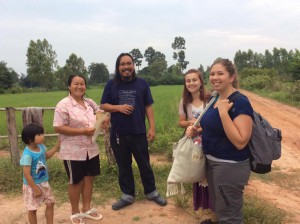
Throughout our program we spend a significant portion of our time in rural communities, living with local people affected by development and environmental issues. While our formal exchanges with these communities do involve a translator, for much of our time with our host families it’s just us and them. Communication is dependent on how much we know their language and how much they know ours. On my first homestay, when I knew very little Thai, I struggled a bit. I didn’t know how to ask about my family’s life or explain that I needed to meet with my classmate next door to work on a project. While I was still able to bond with my family despite the language barrier (I did art homework with the granddaughter and the grandmother modeled different poses for me to sketch), it definitely had a different feel to it than my more recent stays. Now I can keep up a basic conversation with my family members, learn about their lives, answer their questions, and say a lot more than just “this tastes good” and “I’m from America.”
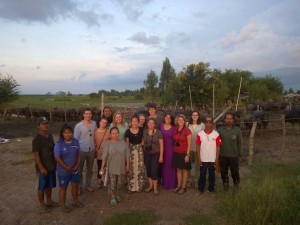
But it isn’t just my homestay families that I’ve been able to connect with through language. I interact with many local individuals everyday—restaurant owners, students, the staff at my apartment… Being able to understand each other (at least to an extent) has been wonderful and has made me feel so much more comfortable in my temporary home.
It’s allowed me to be more independent.
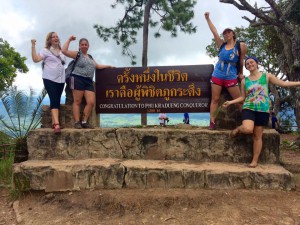
I came to Thailand with zero knowledge of the language. As a result, I felt a bit daunted by the idea of navigating Khon Kaen on my own and the very thought of traveling to other parts of the country without someone to translate was scary. But being able to speak the language (even at a basic level) has changed all that. I now know how to ask for directions if I got lost and I can easily inquire how much things cost, if a dish is spicy or not, or what time a bus is coming. It’s incredibly freeing to be able to communicate and it has really boosted my confidence in my ability to take care of myself in a foreign country. While I still prefer to do more serious traveling with a friend or two, I know that whether we’re together or on our own, we’re far from helpless.
